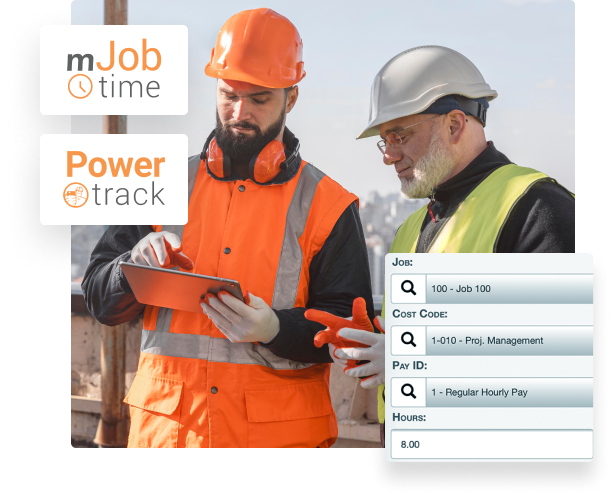Construction job sites are complex and dynamic environments with hundreds of moving assets to track and manage. In this environment, tracking the activities of our most valuable assets – our people – is one of the most important and difficult tasks construction managers face.
While challenging, contractors who manage to tighten labor controls can save upwards of four hours per person per week of over-reported time (U.S. Bureau of Labor Statistics, 2022). Consider a relatively small commercial project forecasted at 50,000 production hours with an average hourly wage of $25. Eliminate inaccurate time reporting, and you stand to save well over $100,000 in labor alone just on that one project.
In my experience, there are three hurdles that contractors and construction businesses must clear to realize these types of labor savings. Let’s look at all three.
Hurdle #1 – Accountability Issues
- Buddy punching: Employees clocking in for absent colleagues at a job site is a common problem that leads to inaccurate labor charges.
- Off-site punches: Clocking in and out from unauthorized locations creates discrepancies and confusion.
- Forgotten punches: Without consistent reminders or prompts, workers may forget to record their start and end times.
Accountability issues can inflate labor costs, create scheduling delays, and lead to payroll mistakes.
Hurdle #2 – Work Classification Errors
- Multitasking and overlapping tasks: Construction involves diverse tasks, and accurately classifying employee time spent on specific activities can be tricky, especially when multiple tasks happen simultaneously.
- Lack of clarity or standardized definitions: Inconsistent understanding of how tasks should be classified and where to track time can lead to errors and discrepancies.
- Prevailing wage compliance: For projects subject to prevailing wage laws, misclassifying work can have legal ramifications and financial penalties.
Accurate work classification is crucial for efficient project management, cost tracking, resource allocation, and ensuring fair compensation for workers.
Hurdle #3 – Technological Limitations
- Paper-based systems: Manually recording and collating time sheets is prone to errors and time-consuming.
- Inaccurate or clunky time tracking software: Some construction time tracking software may not be user-friendly or lack features for construction-specific needs, leading to frustration and low worker adoption.
- Limited connectivity: Lack of reliable internet access on job sites can hinder real-time data collection and prevent immediate error correction.
Technological limitations can make it difficult for your construction business to collect accurate and timely data, hindering construction project efficiency and transparency.
Clear the Hurdles – Win the Race
Addressing these challenges requires a multi-pronged approach:
- Implement robust time tracking systems: Opt for digital solutions, like a construction time clock app, with features like GPS tracking and verification, and automated reminders.
- Apply time capture security measures: Mitigate potential buddy-punching and other time theft opportunities by requiring proof of physical presence (e.g., facial or fingerprint recognition).
- Foster a culture of accountability: Promote transparency and educate workers about the importance of accurate timekeeping.
- Attribute work accurately: Assign all billable hours worked to their appropriate job phases to identify specific areas for productivity improvement and create more accurate cost estimates for future projects.
- Invest in training: Train both project managers and construction workers on how to use time-tracking tools effectively.
- Improve connectivity: Ensure reliable internet access on job sites to facilitate real-time data collection and reporting and look for solutions that allow for offline data capture.
By clearing these construction time-tracking hurdles and implementing effective solutions, construction companies can achieve accurate time tracking, optimize resource allocation, and improve project outcomes.
Mike Soniat is President and Co-Founder of mJobTime, a leading provider of field management solutions for the construction industry for more than 30 years. He can be reached at [email protected].






